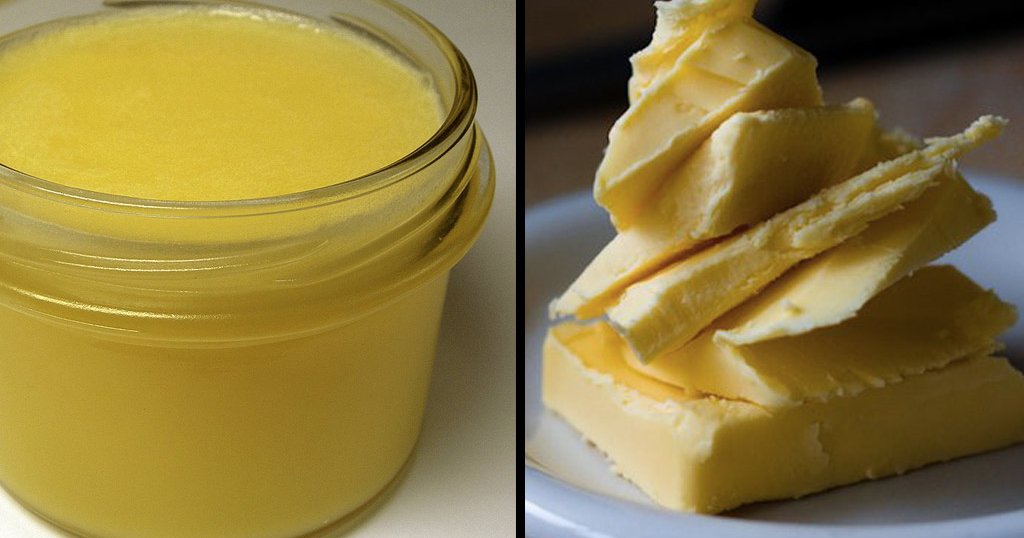
Ghee vs. Butter: Which Is Healthier?
Ghee and butter are two commonly used ingredients in cooking and baking. Both are derived from dairy and possess a rich flavor, making them popular choices for enhancing the taste of various dishes. However, when it comes to their health benefits and nutritional profiles, there are significant differences between the two. In this comprehensive guide, we will delve into the qualities of ghee and butter, exploring their composition, potential health benefits, and considerations for incorporating them into a balanced diet.
Composition and Production:
Ghee, also known as clarified butter, is produced by heating regular butter and separating the milk solids and water content from the pure butterfat. The process involves simmering the butter until the water evaporates, and the milk solids settle at the bottom. The remaining golden liquid is strained, resulting in ghee.
On the other hand, butter is made by churning cream obtained from milk. This process agitates the cream until the fat globules gather and form a solid mass, leaving behind a liquid known as buttermilk. The solid mass is the butter that we commonly use.
Nutritional Profile:
Ghee and butter differ in terms of their nutritional composition. Ghee is essentially pure fat, composed primarily of saturated fat (around 60-65%) and some monounsaturated and polyunsaturated fats. It is also low in lactose and casein, making it suitable for individuals with dairy sensitivities.
Butter, on the other hand, contains approximately 80% fat, with a higher water and milk solids content compared to ghee. It consists of saturated fats, monounsaturated fats, and polyunsaturated fats, along with small amounts of cholesterol and lactose.
Smoke Point:
The smoke point of an oil or fat is the temperature at which it starts to smoke and break down, leading to the formation of harmful compounds. Ghee has a higher smoke point than butter, typically ranging from 400°F to 485°F (204°C to 251°C), depending on the quality and production process. This high smoke point makes ghee more suitable for high-temperature cooking methods such as frying and sautéing.
Butter, however, has a lower smoke point, usually around 350°F (177°C). Beyond this temperature, the milk solids in butter can burn, resulting in a charred or off-flavor. Therefore, butter is better suited for low to medium heat cooking methods like baking, light sautéing, or spreading on toast.
Flavor and Aroma:
Ghee and butter possess distinct flavors and aromas. Ghee has a rich, nutty taste with a subtle sweetness. The process of making ghee gives it a unique caramelized aroma, which adds depth to dishes. It is often described as having a more intense flavor than butter.
Butter, on the other hand, has a creamy and slightly salty taste. The flavor of butter can vary depending on the quality, freshness, and production methods. It is commonly used in baking to lend a pleasant richness and moisture to cakes, cookies, and pastries.
Digestibility and Lactose Sensitivity:
Ghee is considered more digestible than butter due to its lower lactose and casein content. Lactose is the sugar found in milk, and casein is a protein. During the clarification process, these components are largely removed, making ghee a suitable option for individuals with lactose intolerance or dairy allergies.
Butter contains lactose and casein, which can cause digestive discomfort for those who are lactose intolerant or sensitive to dairy products. However, some individuals with mild lactose intolerance may still be able to tolerate small amounts of butter.
Nutritional Benefits:
Both ghee and butter contain essential vitamins and minerals, but their quantities differ. Ghee is a concentrated source of fat-soluble vitamins such as vitamins A, D, E, and K. These vitamins play important roles in various bodily functions, including vision, bone health, immune function, and blood clotting.
Butter is a good source of fat-soluble vitamins as well, but it also contains small amounts of water-soluble vitamins such as vitamin B12 and vitamin B5. These vitamins contribute to energy production, brain function, and the formation of red blood cells.
Heart Health:
The impact of ghee and butter on heart health has been a subject of debate. Both ghee and butter are high in saturated fats, which, when consumed in excess, can contribute to elevated LDL (bad) cholesterol levels and an increased risk of heart disease.
However, some studies suggest that moderate consumption of ghee may not have the same negative effects on cholesterol levels as butter. This could be attributed to the presence of certain fatty acids in ghee that might have a neutral or even positive impact on cardiovascular health. Nonetheless, it is important to remember that moderation is key, and excessive intake of saturated fats from any source should be avoided.
Weight Management:
In terms of weight management, ghee and butter should be consumed in moderation due to their high caloric density. Both contain approximately 120 calories per tablespoon. Excessive calorie intake from any source, including ghee and butter, can lead to weight gain and obesity.
Conclusion:
- When it comes to ghee vs. butter, there is no definitive answer as to which is healthier. The choice between the two depends on various factors, including personal taste preferences, dietary restrictions, and cooking methods.
- Ghee is an excellent choice for individuals with lactose intolerance or sensitivity to dairy, as it is almost lactose and casein-free. It also has a higher smoke point, making it suitable for high-heat cooking.
- Butter, with its creamy flavor and lower smoke point, is a versatile ingredient in baking and lower-heat cooking methods. It contains water-soluble vitamins and is a common choice for those who do not have dairy allergies or lactose intolerance.
- Ultimately, moderation is key in incorporating both ghee and butter into a balanced diet. Consult with a healthcare professional or registered dietitian to determine which option best suits your individual needs and health goals.
- CBD Gummies By Just Delta-Indulge in Just Delta’s CBD Gummies: A Flavorful Journey to Wellness! - March 8, 2024
- Ghee vs. Butter: Which Is Healthier? - July 15, 2023
- Is Cottage Cheese Keto-Friendly? - July 15, 2023

